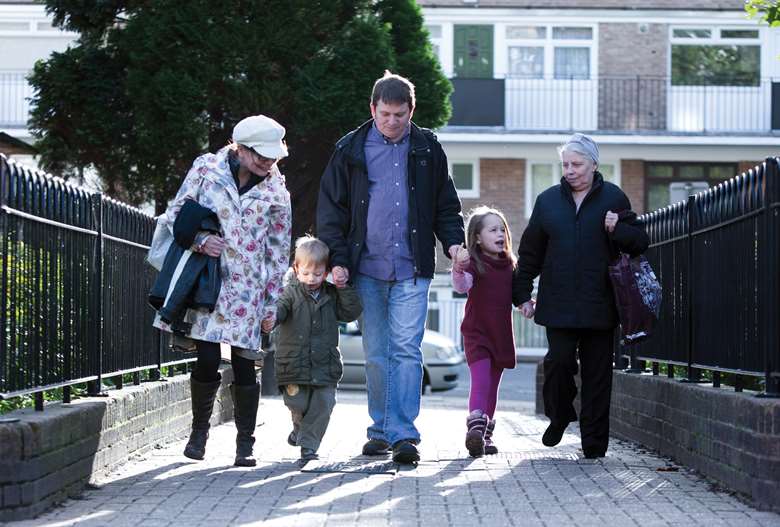Parents hold the keys to power, so parties must put families first
Anne Longfield
Tuesday, September 17, 2013
Anne Longfield says politicians must be pressed to put families at the top of their priority list.

We keep hearing that parents will hold the key to the outcome of the next general election. So this autumn's party conference season will see each of the parties vying to be regarded as the most in touch and sympathetic towards the concerns of modern families. Reassurance that better times are on the way will be welcome. However, given the difficulties that families have been facing, they are unlikely to be won over by policies that miss the mark and fail to address the day-to-day challenges faced in the here and now.
One thing everyone agrees needs to be a major part of all the parties' manifestos is a solution to the cost and availability of childcare. The compulsory expense for households where both parents work presents an insurmountable challenge for many families. As with the majority of financial outgoings, these costs are rising year by year. Childcare has now moved centre stage. Political parties of all colours must present a clear vision of how they propose to support working families with more affordable and accessible, high-quality childcare.
Parents should feel able to make decisions about their childcare and working arrangements based on what they want for their family, rather than settling for the least worst option. The governing parties have begun setting out their stalls with an expansion of free early education for disadvantaged two-year-olds, more help for families on low incomes who claim Universal Credit and a new tax-free voucher for those on moderate, middle and higher incomes. It is encouraging that the government is building on its investment in early education and childcare.
Future ambitions for improving the childcare offer in this country vary. Some, including the Institute for Public Policy Research, argue the priority should be to expand the universal childcare offer. Options include increasing the number of hours offered for three and four-year-olds to better support working parents, or making the two-year-old offer universal. Others highlight gaps in existing provision. The Resolution Foundation has identified those low-income families who stand to lose out under current government proposals. There are also calls to address the difficulties parents have in locating childcare for their school-aged children.
As the recent expansion of the two-year-old offer shows, any significant extension in childcare support would come with an additional, and significant, price tag. But that should not dissuade ambition. Improvements can be made to the way support is organised and accessed that do not cost the earth. One such proposal is 4Children's model of a community childcare hub, currently under trial in six areas. The hubs aim to create a new, replicable model of high-quality "blended" childcare that provides working families with the flexibility they need to balance their work and home commitments while helping to improve quality and sustainability. Parents will be able to access childcare from a nursery, an out-of-school club, a childminder or a mix, from one co-ordinated source. The pilots aim to get away from the often fragmented system we currently have, which sees providers working in isolation, and parents struggling to find out about vacancies and having to put together their own emergency arrangements when life throws up unexpected challenges. This approach has been included in the Liberal Democrats' policy paper A Balanced Working Life, with party members due to vote on it becoming a formal party policy at their annual conference in Glasgow.
Research shows that families have borne the brunt of austerity measures and the soaring cost of living. According to the Institute for Fiscal Studies, households with children have suffered most (as a percentage of household income) due to recent welfare reforms. At the same time, families with children are facing an unprecedented squeeze on their finances as a result of the rising cost of everyday necessities such as food, petrol and childcare and reductions in benefits and tax credits. A recent report from insurance provider Aviva reveals that rising prices on almost every item, from food to utility bills and childcare costs, means that families have been paying out a whopping £3,972 a year more on household expenses than they were in 2011.
As a direct result of these concerns, 4Children launched its Fair4Families campaign at the beginning of the year, petitioning the Chancellor to show his support for families in the 2013 Comprehensive Spending Round in the first instance. In the run up to the general election, these issues will become even more important. It will be crucial to press politicians to put families at the top of their priority list. Families want creative visions as well as specific solutions for the issues that really matter, from childcare and housing to parenting support and health. There will be a hefty political dividend for the party that takes heed and gets it right.
Anne Longfield is chief executive of 4Children




